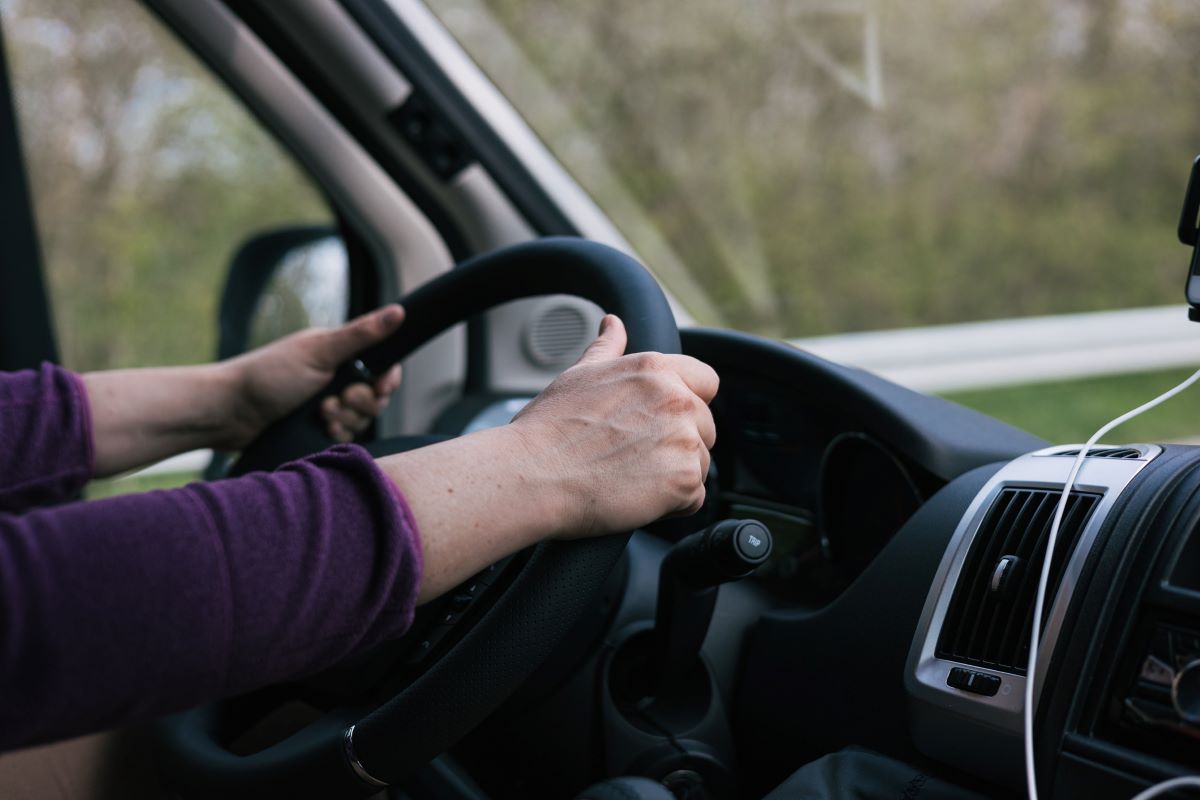Editor’s note: If you would like to help Loki, please visit her GoFundMe page.
I’ve written in previous articles that just as greed-driven landlords have helped price so many people out of housing, the greed-driven companies who are selling unbelievably overpriced used vehicles are pricing poor people out of driving. That doesn’t mean I won’t fight to keep a van.
I said it a thousand times, and will repeat it again: My van is my lifeline. Take it away, then take away my life because without it, where would I go? A tent on the street? A dangerous shelter? As a disabled person, I’d never survive those things.
Living with chronic pain, chronic illness, chronic poverty, and chronic housing insecurity, with absolutely nothing but more of the above to look forward to, is not what I call a worthwhile life for myself. Not because I desire luxury but because I cannot survive in this society with my basic disability needs met, which are little more than a clean, quiet room in a 100% smoke-free environment, free of insect infestation and rodents.
That’s hardly too much to ask, but apparently it is.
For the duration that I’ve been fortunate enough to stay in a home office at a house-sitting home, I have not felt one moment of peace (though I feel infinite gratitude). Every moment, even in my dreams, I am a nervous wreck about what happens when I am forced to leave.
Most people cannot imagine what it’s like to live this way. Housing insecurity has plagued me for my entire adult life. I have not had many periods of feeling stable or safe. Moving from one place to another, over and over again, is stressful and exhausting for anyone, much less someone who is both physically disabled and who is autistic.
The van I had before the current one (which I had when I lost my home in April of 2017) was very rusted and had so many issues. By 2019, I knew it wouldn’t pass inspection again. It seemed incredibly illogical to dump any money into keeping it on the road, as it was an economy car and already 23 years old.
I did a lot of looking and asking questions and eventually hunted down the van I have now in early 2020. According to Car Fax, it had a great history, and it was garaged its whole life by its only single owner.
The mechanic selling it said it easily passed inspection and that he drove it on a trip to the city and back and said it drove very well. It was clean and had no visible rust. I was so happy to have found it.
It was bigger than my van, and it would make life easier in terms of being less cramped and more organized. This van was only eleven years old, which felt very new to me. For a few months, I felt hope about having a reliable piece of transportation before the first problem started.
Each year, that van has needed costly repairs to keep it going.
It’s like the universe knew it was my van now and cursed the thing. Every year since 2020, I’ve had thousands of dollars dumped into it.
Outsiders do not understand this dynamic. Even many dear friends do not. When you are homeless or suffering from constant housing insecurity, the need to have a place to be where you are reasonably safe and can have some sort of routine is critical to your health and well-being. For many of us, being homeless in a van is far better than the alternatives.
Invisible People has made innumerable videos, interviewing countless people on the streets. I believe that being street homeless, tent homeless, and shelter homeless is far worse than homelessness in a van.
I am quick to remind people, however, that being homeless in a van is not the same as those people who deliberately choose “van life” and who identify as nomads. Some of them boast about the big life of freedom they have by living like that.
To each their own, I say. But many of those people have luxury vehicles or have turned old-school buses and other vehicles into gorgeous apartments on wheels with bathrooms and kitchenettes. I cannot afford that.
A van, for most of us poor and disabled homeless people, is a simple place to lie down and a way to keep the medical equipment you need to survive.
It’s a constant challenge to find a safe place to park where you won’t be harassed. The cost of gas becomes a massive burden in itself as you must run the vehicle to get heat or air conditioning. Then, add in all the other costs of vehicle ownership. Still, it’s so much better than the alternatives that it’s worth fighting to keep it.
The world changed since 2020 in more ways than one. But a huge difference is that since I bought the current van in 2020, the cost of used cars, car parts, and car labor has skyrocketed!
I paid $5,500 for that van in 2020. It had about 140,000 miles on it. Now, a van of similar specs costs closer to $10,000 or even more. I have even seen some listed at $19,000 for almost the same specs that mine had when I bought it!
Since I have no way of accumulating that much money, and I have never had credit in my whole life, I have no way to replace my van. Putting in $2,000 here and there is incredibly hard. But I cannot imagine trying to live with no van for years while I try to find something affordable that is under 150,000 miles! Where would I go?
Some people have even preached at me about how I should suck it up and realize I can’t have a van, and if I’m lucky, I might be able to find some little economy car to get around in. They absolutely do not realize what happens to people who are homeless in a car versus a van with a bed in it.
This is that old “beggars can’t be choosers” mindset.
Before Christmas 2023, my van began displaying the same behavior of shutting down while driving that I experienced in September 2023. The soonest appointment I could get with a much more reputable shop than the dealership was February 12th. That’s a long time to be without my van, and I am in agony with overwhelming, constant anxiety over how much more it will cost to get it back to working order.
What do I do if I have to leave this home office I’ve been staying in, which was threatened once already? No one sane person would want to live my life. I know I don’t. But to lose having a van on top of it all? I do not want to even imagine that, and I pray that fate can be averted.











